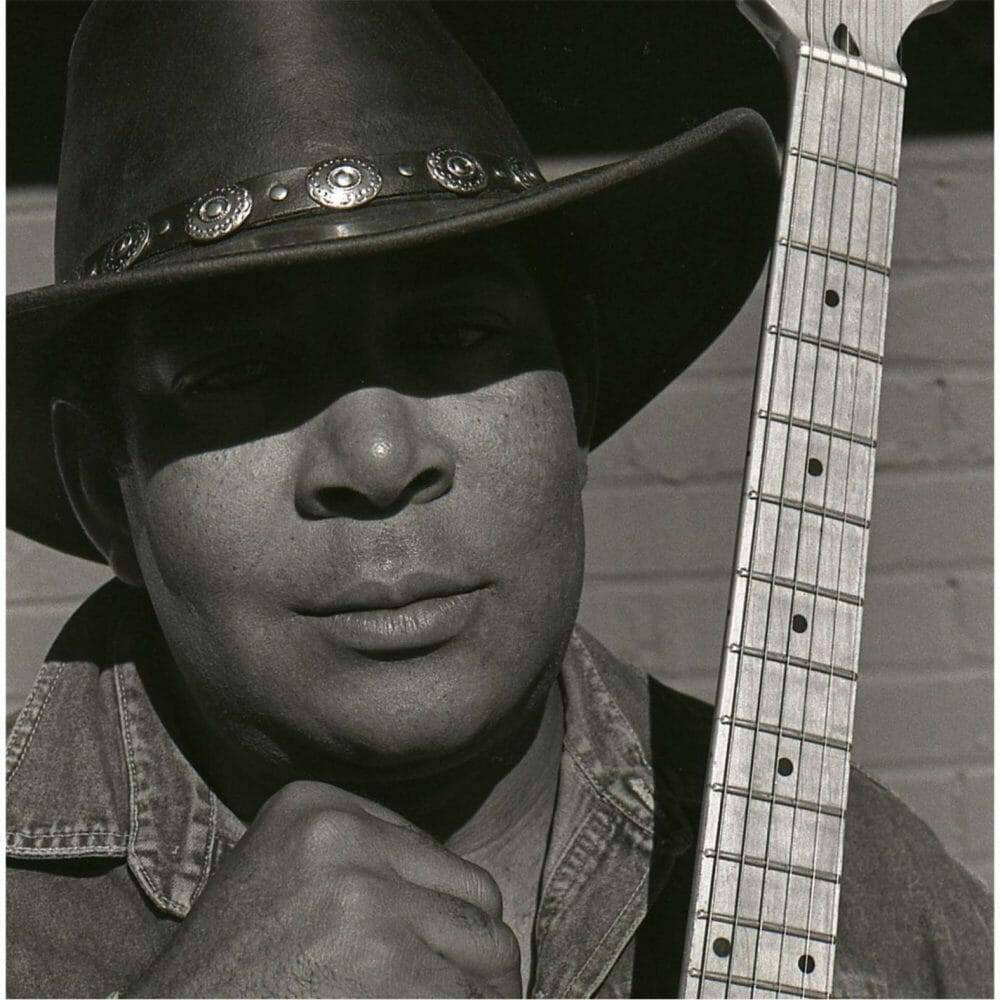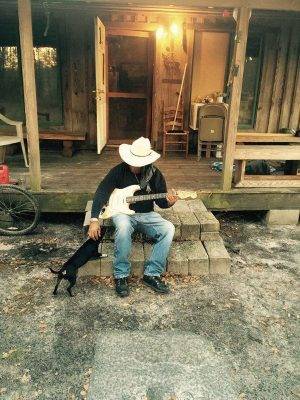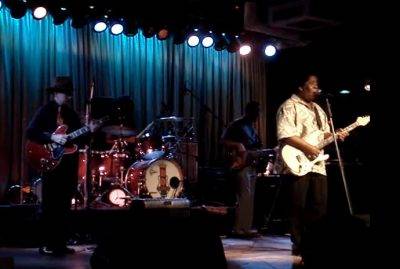An In Depth Interview with Gitlo Lee
Raised on a turpentine farm among nine brothers and three sisters, Gitlo Lee’s passion for the blues as a youngster was repressed by his devout Christian parents. Nonetheless, he sneaked around juke joints to listen to what some called the “devilish” sound of the blues. He even built himself a primitive guitar out of Prince Albert tobacco cans, a burned out tire and some wires tied to pennies.
Now in his 60s, “Gitlo” – so named because a foreman watching the young Lee pick sweet potatoes remarked “Boy, you sure know how to get low” – is releasing his first cd ever, Comin’ Out The Hole. But he is no novice. In fact, the onetime child prodigy has earned the respect of such well-known musicians as Gregg Allman, Derek Trucks and Susan Tedeschi for his original music and rich, Southern blues performances.
Menola, Georgia – a town on the skirts of the Okefenokee Swamp in lower Georgia where the South couldn’t get any deeper – was basically a sharecroppers’ camp where Gitlo and his siblings were sheltered beneath the umbrella of respect afforded his father, a Church of God in Christ minister. “We called it ‘Turpentine Quarters,” Gitlo explains. “We didn’t do all the cotton pickin’. That was woman’s work. I drew a mustache on my face when I was nine years old ’cause there was more money in turpentine.”
Gitlo’s father taught his children to work hard and live peacefully in the segregated Old South. He taught them to love God. And, as a musician himself, he taught them to love music.
But his father’s music was strictly gospel, and Gitlo heard music playing from the other side of the tracks. “I would sneak in to the juke joints in nearby Tifton, to Miss Little Dehlia’s place. You could buy just about anything from her for a dime. She sold beer, cookies and candy, and she had the old blues guys come by to play,” he says. “Man, I just had to be involved. I wanted to play and I could feel what they were doing.” By the time he was 13, Gitlo was recognized as a local guitar phenomenon, and when famous bluesman Sonny Boy Williamson came to town for a New Years Eve gig and needed a guitar player, he came calling for Gitlo. The gig was so successful, he invited the teenager to join his band on the road.
But again, Gitlo’s rigidly-religious parents intervened, and refused to allow their 13-year-old son to pursue the blues. According to Gitlo, “I was already a grown dude at 12 and 13 years old,” so you can imagine the disappointment his mother’s decision wrought.
They did allow him to hit the road with a traveling evangelist, however, and the experience was eye-opening for the youngster. “He was just a bad preacher,” Gitlo recalls. “He drank and he ran with women. But he was a real artist, sang like Sam Cook. A black guy that looked like a white guy and the women loved him. My parents trusted me with this guy and he was the biggest crook in the world.” Gitlo continued to pursue the blues, and a few years later, was a regular on the “chitlin” circuit, joints that old school, hard knocks performers play in. By the time he was 19, he was working with Ricky Calloway, “The King of Florida Funk.”
Gitlo has remained about as grass roots as the blues can get. He has toured for 46 years up and down the Eastern Seaboard, headlining at clubs like BB King’s in Orlando, Florida. He now splits his time between South Georgia and Breaux Bridge, Louisiana, where his label, Chuckie Productions is based.
Comin’ Out The Hole is a stunning debut, and long overdue. “I don’t never stop punching,” he declares. “I don’t ever stop swinging. I’m not out there for the drugs and alcohol. I’m trying to prove it to myself. That’s the bottom line.”
“If I couldn’t do this,” he says, “I would ball up and die.” – Gitlo
Discover more from Making A Scene!
Subscribe to get the latest posts sent to your email.


















































